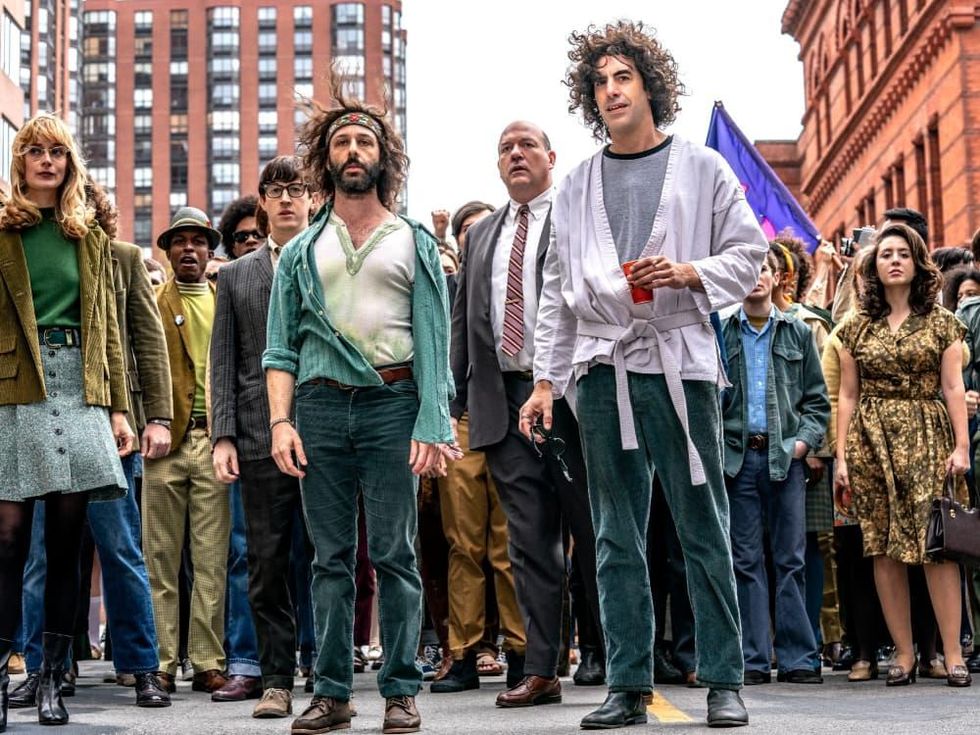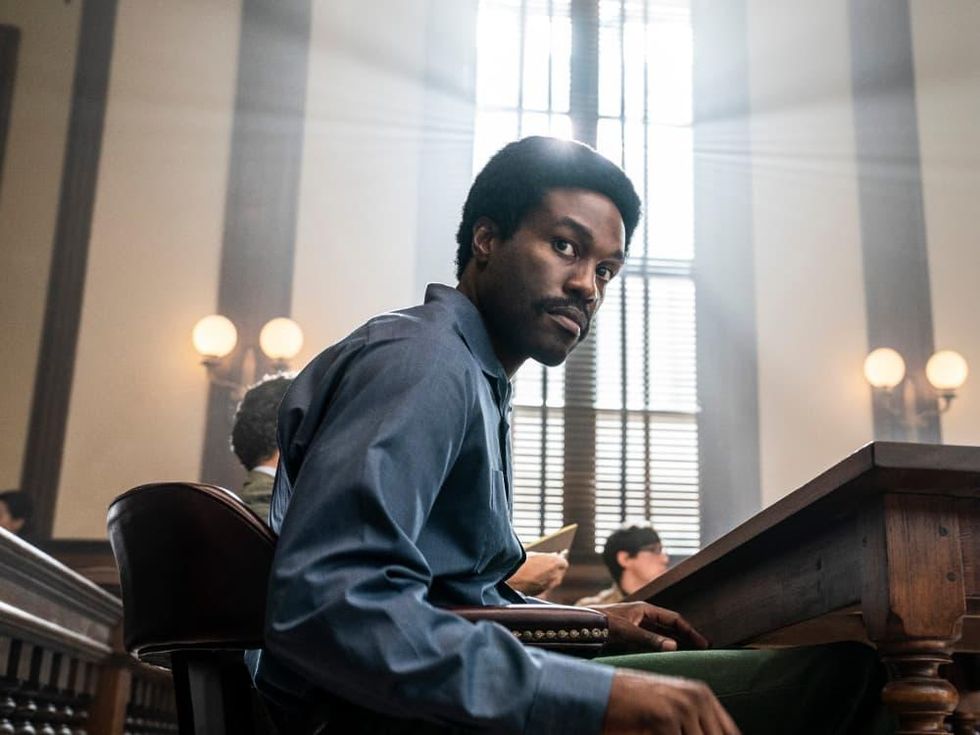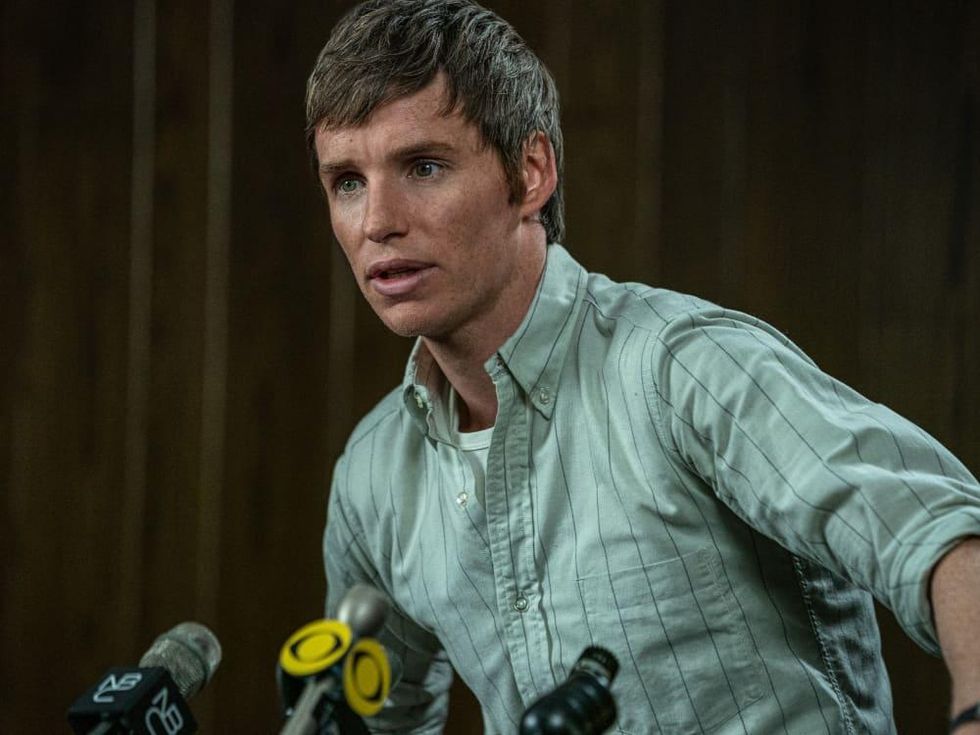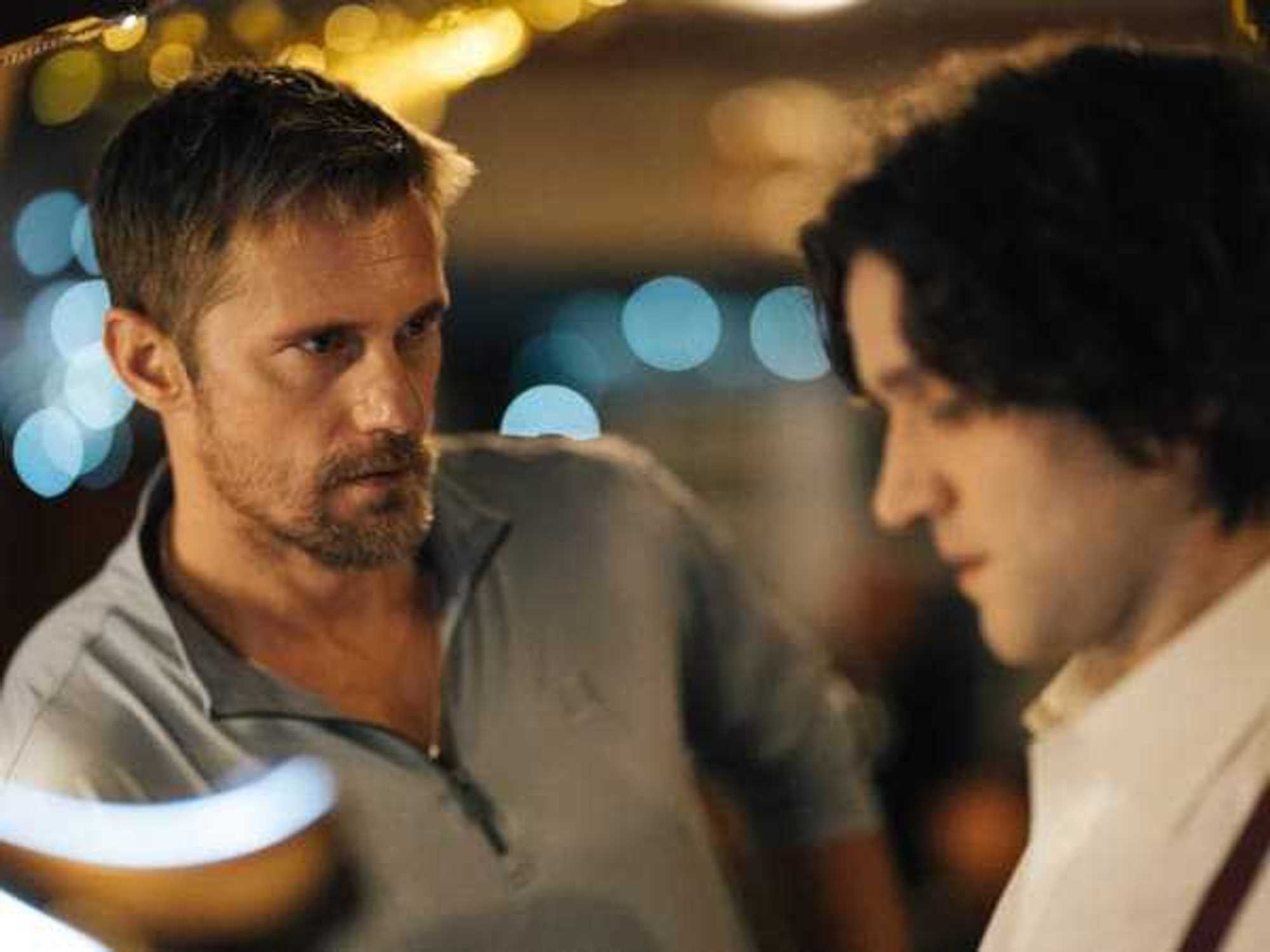Movie Review
The Trial of the Chicago 7 is a scorching actors showcase
As a writer, Aaron Sorkin has had indelible takes on both trials (A Few Good Men) and real-life controversial figures (The Social Network). In just his second directorial effort following 2017’s Molly’s Game, he’s fusing the two notions together for a look at one of the most notable periods in American history in The Trial of the Chicago 7.
The Chicago 7 — Abbie Hoffman (Sacha Baron Cohen), Jerry Rubin (Jeremy Strong), Tom Hayden (Eddie Redmayne), Rennie Davis (Alex Sharp), David Dellinger (John Carroll Lynch), Lee Weiner (Noah Robbins), and John Froines (Danny Flaherty) — were brought to trial on charges that they incited rioting during the 1968 Democratic National Convention in Chicago. Each of the group had come to the city to protest the escalating war in Vietnam.
What’s most notable about the film is that it spends most of its time at the trial itself, which lasted nearly five months. That sounds logical since it’s the title of the film, but it would be arguably more cinematic to spend equal or more time on the events that got them indicted in the first place. Instead, Sorkin goes back to the protests only at strategic moments, which makes the glimpses he does show all the more powerful.
In reality, the trial itself contained more than enough drama to make it narratively compelling. An eighth defendant, Black Panther Party leader Bobby Seale (Yahya Abdul-Mateen II), was included in the trial despite not having anything to do with the other seven. The judge, Julius Hoffman (Frank Langella), made a number of shocking decisions during the trial, including not allowing Seale to have proper representation or defend himself.
Sorkin masterfully lays out the film so that even if all of the particulars are not immediately understandable, the feelings of injustice and anger come through loud and clear. The progression of the trial is baffling, as lawyers on both sides — William Kuntsler (Mark Rylance) for the defense and Richard Schultz (Joseph Gordon-Levitt) for the prosecution — are at a loss as to how to handle the incomprehensible behavior of the judge.
While they were charged together, the members of the group had wildly different approaches toward the same goal. Sorkin plays up their individual personalities well, with Hoffman and Rubin representing hippies, Hayden and Davis more buttoned-up, and Dellinger the mild-mannered dad type. In so doing, Sorkin is able to give the film a good amount of humor without undercutting the inherent drama.
Sorkin also weaves in real-life footage to drive home the point that what occurred in at the protests — that is, violence started by the police — is not something he just dramatized for the sake of the movie. And although the parallels are unintended, since the film was made prior to 2020, the story can’t help but feel like a commentary on current world events on a number of levels.
Nearly every actor in the film is pitch-perfect in his or her performance. Cohen, best known for his comedic roles like the upcoming Borat sequel, is magnetic as Hoffman, but Sorkin gives everyone a chance to shine. Mateen, who just won an Emmy for his work on HBO’s Watchmen, is especially notable, as he brings a real gravitas to his role.
Sorkin has accomplished everything he wanted and more with The Trial of the Chicago 7. It’s a piece of history that deserved to be retold, and through his impeccable dialogue and direction, Sorkin has made one of the best films of the year.
---
The Trial of the Chicago 7 is playing in select theaters and debuts on Netflix on October 16.




